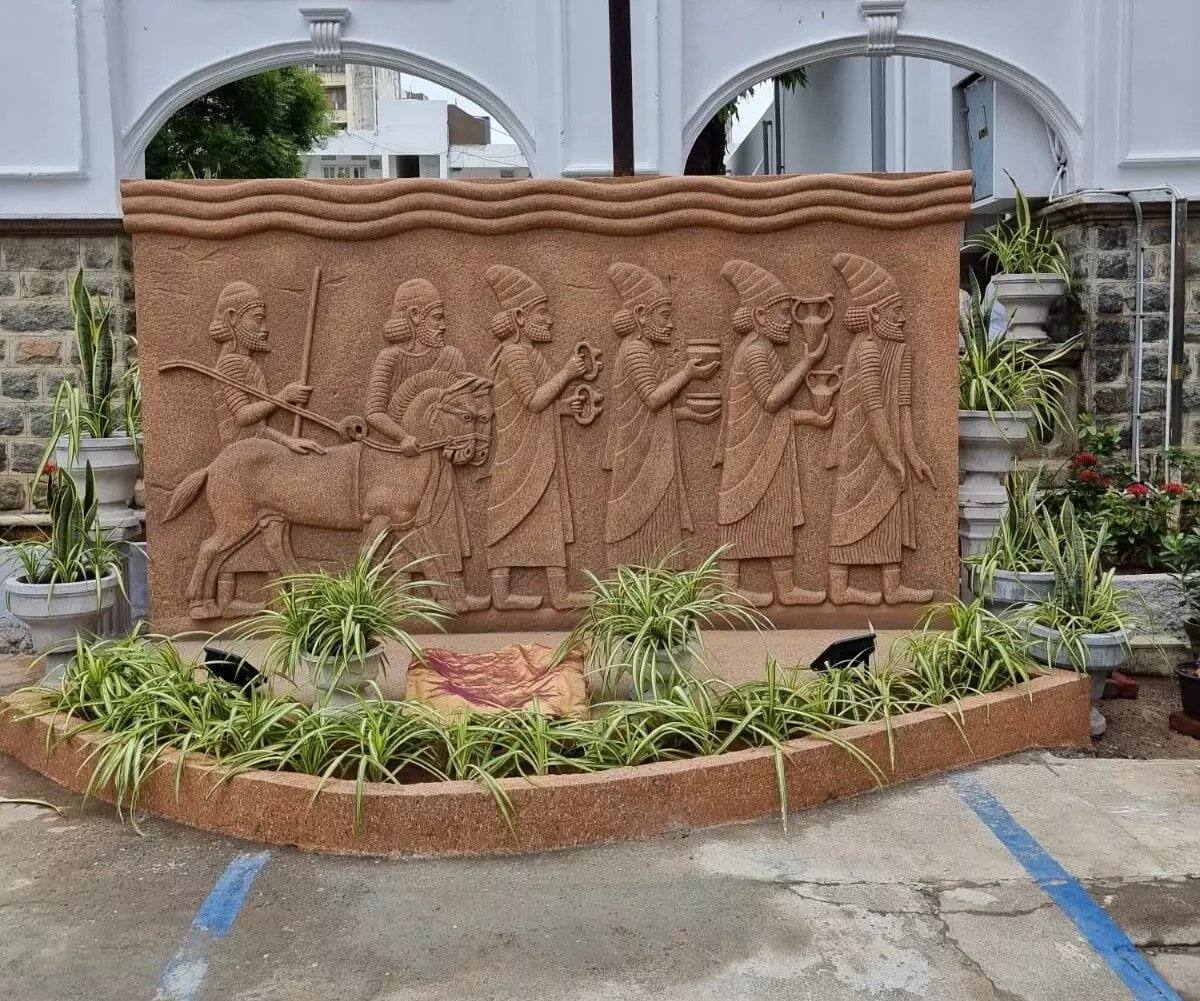Zoroastrian faith shines brightest during Muktad
Zoroastrians believe that during these 10 days, the Souls of their deceased relatives visit Earth
By Beyniaz Edulji
Hyderabad: Muktad or the 10 days of prayers are currently taking place at every Zoroastrian fire temple in India. It is a busy time for the three fire temples of our Twin Cities which have a population of less than a thousand Zoroastrians.
There are two fire temples in Secunderabad and one in Hyderabad. All three temples are also Heritage buildings, each over a century old. Two are located on Mahatma Gandhi Road and one on Tilak Road, amid busy commercial areas but the temples are set in large compounds with gardens, like an oasis of green in a concrete desert.
What is the meaning of Muktad?
The word 'Muktad' is derived from the Sanskrit Mukta Atma (free Soul).
Zoroastrians believe that during these 10 days, the Souls of their deceased relatives visit Earth. It is considered the duty of their living kin to welcome and honour them.
Each departed soul has their individual vase, which may be of simple metal or silver. These vases are filled with fresh water from the wells and flowers that are changed daily. It is in this water that the Souls reside during their 10-day earthly sojourn. Every fire temple has an old-fashioned well in its garden.
Flowers and prayers
At the Seth Edulji Sohrabji Chenoy Anjuman Fire Temple of Secunderabad, exquisite flowers for the Muktad vases are brought by Khorshed S Chenai, who is the president of Parsi Zoroastrian Anjuman of Secunderabd and Hyderabad and arranged by the priests and helpers of the fire temple.
The head priest, Ervad Saheb Aspi S Patel, has been conducting the prayers punctually, efficiently and with the greatest of devotion for decades.
Devotion
An atmosphere of devotion fills the halls of the fire temples where rows of tables with vases and flowers are kept amid the smoky haze of sandalwood fires and diyas.
Men and women dressed modestly in white or light-coloured clothes, with heads covered with caps or scarves come in the mornings to the fire temples to pray. The priests start individual prayer recitals in the early morning. Many Parsis also keep vases filled with flowers and pray in their homes.
In earlier days, Muktad prayers used to be held for 18 days. Nails and hair would not be cut. Modern times have led to the observance of Muktad for 10 days only.
Social significance
Muktad is of great social significance since these 10 days strengthen family bonds as estranged family members forget their differences and get together to pray.
Houses are cleaned, an atmosphere of devotion is created and a feeling of respect for elders and the departed is instilled in the younger members.
The Muktad days are also an important reminder to the living about the transient nature of their existence and the need to live truthfully.
Parsis believe that during Muktad one has to devote time for prayers, do charity and keep routine work to the minimum. Muktad is a time for repaying the debt of gratitude to ancestors.
The days of prayer and reflection also help to renew the memory of deceased relatives and realise the responsibility for future generations.
Navroz or Parsi New Year arrives after the 10 days of Muktad.
Parsis in India
Parsis are Zoroastrians who migrated to India from Persia (Iran) between the 8th and 10th centuries. They originally spoke Farsi, and later adopted Gujarati and some Indian traditions, although they still maintain their separate ethnic identity in India.
Parsis may just be the world’s earliest environmental warriors as they take care never to pollute the elements of ‘Fire, Air, Water and Earth.’ Fire is of special significance to the Zoroastrians.
In 1803, Sohrabji Pestonjee Chenoy and 14 other Parsis came to Hyderabad when the Hyderabad Contingency was transferred from Jalna to Bolarum.
The Parsis now number around 50,000. Mahatma Gandhi said of the Parsis, “I am proud of my country, India, for having produced the splendid Zoroastrian stock: in numbers beneath contempt, but in charity and philanthropy perhaps unequalled and certainly unsurpassed.”
This minuscule minority community has certainly contributed some of India’s best lawyers and jurists, doctors, Army, Navy and Air Force officers, writers, wonderful chefs, ethical businessmen and industrialists.